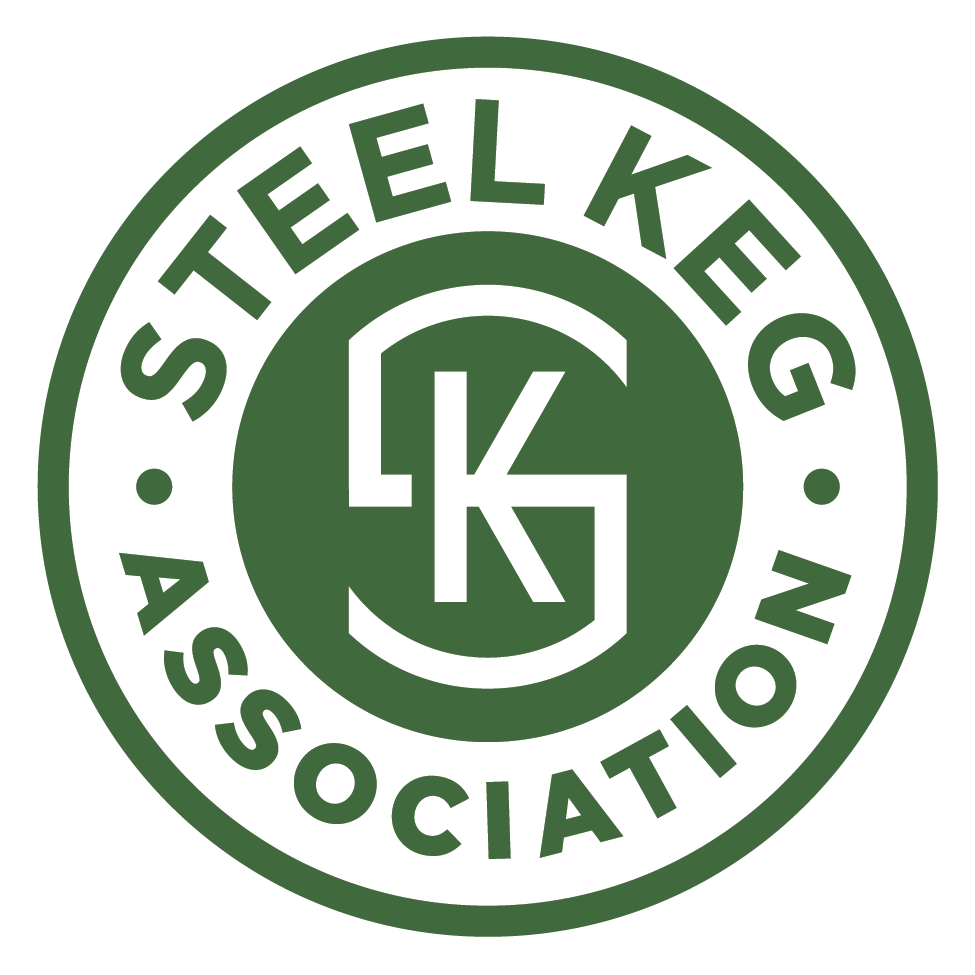Beyond Beer: Unexpected Industries Tapping Into Steel Kegs
A Sustainable Shift in Beverage Storage
When you think of stainless steel kegs, beer is likely the first thing that comes to mind. But today, industries far beyond brewing are discovering the benefits of steel kegs, from premium wineries to kombucha fermenters and cold brew coffee roasters.
The Steel Keg Association champions the use of REUSABLE stainless steel kegs across all beverage sectors. Why? Because they offer unmatched durability, product protection, and sustainability, helping businesses reduce waste, cut costs, and improve efficiency.
This is not just a trend but a revolution in beverage storage. Let’s explore how diverse industries are tapping into the power of steel kegs.
1. Wine on Tap: A Game-Changer for the Industry
The Problem is the wine industry has long relied on glass bottles, but they come with challenges; breakage, high shipping costs, and significant carbon emissions from production and recycling.
The Steel Keg Solution
Extended freshness: Wine stays perfectly preserved in kegs for up to six months (or longer with proper dispensing systems).
Lower environmental impact: A single steel keg can replace hundreds of glass bottles, drastically reducing waste.
Cost efficiency: Kegs cut packaging, storage, and transportation costs by up to 30% compared to bottled wine.
[Source: Wine Spectator, Courtesy Free Flow, 2016.]
The Trend
Wine bars, restaurants, and even high-end wineries are adopting kegged wine programs. Industry leaders like Gallo Winery and Union Wine Co. have embraced kegs for by-the-glass service [Wine Business Monthly, "Wine on Tap Report", 2024].
2. Kombucha and Fermented Beverages: Keeping Probiotics Perfect
The Problem is Kombucha and other live-culture drinks require careful fermentation and carbonation control. Traditional packaging (glass or plastic) can lead to inconsistent carbonation, contamination risks, and excess waste.
The Steel Keg Solution
Precision carbonation: Kegs maintain optimal CO2 levels, ensuring every batch is perfectly fizzy.
No light or oxygen exposure: Unlike clear bottles, steel kegs protect probiotics from degradation.
Easier distribution: Kegs simplify bulk transport for cafés, juice bars, and retailers.
The Trend
Major kombucha brands like GT’s Living Foods and Health-Ade use kegs for wholesale distribution. Small-batch fermenters are switching to kegs to reduce single-use plastic waste [Kombucha Brewers International, "Annual Industry Report", 2023].
[Source: SOMA Kombucha, Belmont Taproom and Wholesale Kegging, 2024.]
3. Cold Brew Coffee and Nitro Beverages: Freshness at Scale
The Problem is cold brew coffee is booming, but bottled and canned versions can lose freshness quickly. Plus, the demand for nitro-infused coffee requires specialized dispensing.
The Steel Keg Solution
Longer shelf life: Kegs keep cold brew fresh for weeks without preservatives.
Perfect for nitro infusion: Steel kegs are ideal for nitrogenated beverages, delivering that creamy, smooth texture.
Bulk service efficiency: Cafés and offices use kegs for self-serve taps, reducing single-use cup waste.
[Source: Perfect Daily Grind, How Café Owners Can Tap Into the Cold Brew Market, 2020.]
The Trend
Chains like Starbucks and Blue Bottle use kegs for cold brew in stores. Independent roasters are adopting kegs to expand into grocery store growler stations [National Coffee Association, "Cold Brew Market Trends", 2024].
4. Cocktails on Tap: A Smarter Way to Serve Spirits
The Problem is traditional cocktail service can be time-consuming and inconsistent, especially in high-volume venues. Bottled or pre-mixed cocktails create significant packaging waste and often fall short in terms of freshness and quality control.
The Steel Keg Solution
Speed and consistency: Cocktails served from kegs allow bartenders to pour high-quality drinks in seconds, with consistent flavor and presentation.
Less waste: Steel kegs eliminate the need for single-use bottles and cans, significantly reducing waste.
Sustainability at scale: Reusable kegs reduce packaging and transport emissions while supporting environmentally conscious service models.
The Trend
Bars, hotels, and restaurants are increasingly turning to kegged cocktails to streamline service and minimize environmental impact. Dispensing solutions from providers like Micro Matic have made it easier than ever to serve premium cocktails on tap without compromising quality [Micro Matic, "How to Execute Cocktails on Tap", 2024].
[Source: Micro Matic, Cocktails on Tap, 2025.]
Conclusion: The Future of Beverage Storage is Reusable
The shift to steel kegs is not just about beer anymore, it's a movement toward sustainability, efficiency, and innovation across the beverage industry.
Wineries are cutting costs and waste.
Kombucha brewers are ensuring perfect fermentation.
Coffee roasters are keeping cold brew fresh.
Cocktails are being served faster and generating more sales.
Sources:
Wine Business Monthly, "Wine on Tap Report", 2024.
Kombucha Brewers International, "Annual Industry Report", 2023.
National Coffee Association, "Cold Brew Market Trends", 2024.
Beverage Industry News, "RTD Cocktail Trends", 2024.
EPA, "Guide to Sustainable Food and Beverage Packaging", 2023
Wine Spectator, "Tapping the Potential of Wine in Kegs", 2024.
SOMA Kombucha, "Belmont Taproom and Wholesale Kegging", 2024.
USA Today, "Starbucks Nitro Cold Brew Launch Pits Starbucks Against Specialty Shops", 2016.
Perfect Daily Grind, "How Café Owners Can Tap Into the Cold Brew Market", 2020.
Micro Matic, "How to Execute Cocktails on Tap," 2024.





